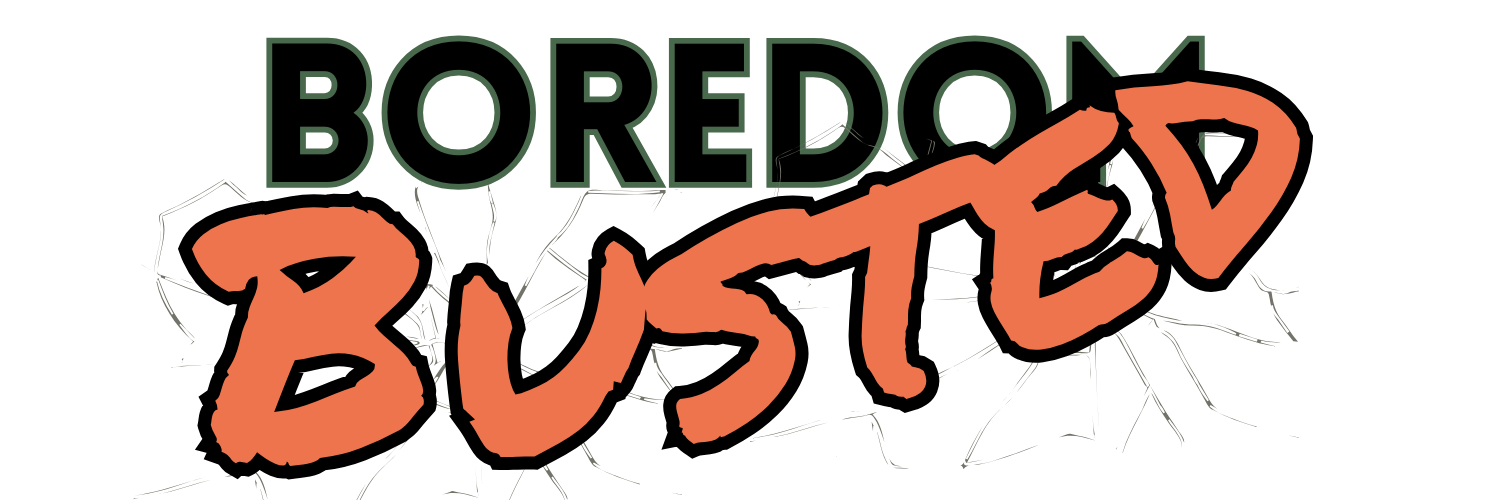We all experience boredom from time to time, but did you know that engaging in hobbies can be the perfect antidote to boredom? There are numerous benefits of hobbies, from improving mental health to boosting creativity and personal growth.
In this fun and informative guide, we’ll explore the hobby benefits, how to get started with a new hobby, and even delve into our Definitive Hobbies List for inspiration.
So,
Let’s dive in and discover the exciting world of hobbies, the benefits of hobbies, and how they can improve your life!

Article Content:

Benefits & Advantages of Hobbies
Enjoyment & Fun Benefits
Some hobbies are especially enjoyable, providing a much-needed break from the stresses of daily life and offering an opportunity for relaxation and fun.
These hobbies often focus on personal satisfaction, creativity, and leisure, making them ideal for unwinding and recharging.
Examples of enjoyable hobbies:
There are many hobbies that can bring joy and relaxation to your life.
- Painting or drawing: Unleash your creativity and express yourself through various art forms.
- Watching movies or TV series: Immerse yourself in the world of storytelling and enjoy a wide range of genres and styles.
- Listening to or creating music: Discover new artists, explore different music styles, or create your own tunes.
- Cooking or baking: Experiment with new recipes and indulge in the pleasure of creating delicious dishes.
- Gardening: Connect with nature and enjoy the satisfaction of nurturing plants and watching them grow.

Hobbies can enhance enjoyment by:
- Providing an escape from daily stress and routine, allowing you to unwind and recharge.
- Offering a sense of accomplishment and satisfaction when you create, explore, or master something new.
- Encouraging self-expression and creativity, which can be both therapeutic and enjoyable.
- Helping you discover new interests and passions, leading to a more fulfilling and diverse leisure time.
- Strengthening connections with others who share your interests, leading to shared experiences and a sense of belonging.
Balancing enjoyment and personal growth...
While hobbies can be a great source of enjoyment, it’s important to maintain a balance between leisure activities and personal growth.
Make sure you set aside time for learning, skill development, and self-improvement, while still allowing yourself to indulge in the simple pleasures that hobbies provide.

Mental Health Benefits
Stress relief: One of the most significant benefits of hobbies is their ability to help relieve stress. Engaging in a hobby can provide a much-needed mental break from daily pressures and responsibilities, allowing you to focus on something enjoyable and satisfying.
Activities such as gardening, painting, or playing a musical instrument can provide a sense of calm and relaxation, making them excellent stress-relievers.
Creativity boost: Another benefit of hobbies are they can help to ignite your creative spark, allowing you to explore new ideas and ways of thinking.
Whether you’re writing, painting, or crafting, hobbies provide an outlet for self-expression and encourage you to think outside the box.
This creative exploration can, in turn, lead to increased problem-solving skills and innovative thinking in other aspects of your life.

Personal growth & skill development benefits
Hobbies for personal growth: Engaging in hobbies can contribute to personal growth by helping you discover new interests, develop talents, and learn new skills.
As you progress in your chosen hobby, you’ll likely experience a sense of accomplishment and increased self-confidence. This self-improvement can lead to a more fulfilling life and even open up new career opportunities.
Hobbies for skill development: Another benefit of hobbies is it involves the development of specific skills, from woodworking to cooking or photography. As you practice and improve these abilities, you’ll not only become more adept at your hobby but also gain valuable life skills that can be applied in other areas of your life.

Social benefits
Hobbies for social interaction: Hobbies can provide fantastic opportunities for social interaction and meeting like-minded individuals.
Joining clubs, attending workshops, or participating in group activities can help you connect with others who share your interests.
These connections can lead to new friendships and one of the great benefit of hobbies.
Building relationships through hobbies: Sharing a hobby with family members, friends, or romantic partners can strengthen relationships and create lasting memories.
Whether it’s working on a DIY project together, playing a sport, or traveling, hobbies can bring people closer together and create a shared sense of enjoyment.

Physical health benefits
Hobbies for physical health: Some hobbies, such as hiking, dancing, or playing team sports, can provide significant physical health benefits.
Engaging in regular physical activity can help maintain a healthy weight, improve cardiovascular health, and boost overall well-being.
Even hobbies that are not explicitly exercise-based, such as gardening or woodworking, can still offer physical benefits by keeping you active and engaged.

Examples of physically engaging hobbies: There are many hobbies to choose from that can keep you physically active while also providing mental and social benefits.
Some examples include racquetball, swimming, cycling, yoga, martial arts, and team sports like soccer or basketball.
Money Making Benefits

Hobbies that can generate income: Some hobbies not only offer personal enjoyment and growth but also have the potential to generate income. (Check out our money-making hobbies guide!)
Whether you’re looking to supplement your primary income or simply earn a little extra cash, turning your hobby into a side hustle can be both rewarding and lucrative.
Examples of money-making hobbies:
There are many hobbies that can be turned into profitable ventures. Here are a few examples:
- Crafting: Create and sell handmade items such as jewelry, clothing, or home decor on platforms like Etsy or at local craft fairs.
- Photography: Offer your photography skills for events, portraits, or commercial purposes, or sell your images as prints or digital downloads.
- Writing: Earn money through freelance writing, blogging, or self-publishing your own books or e-books.
- Playing music: Perform at local venues, teach music lessons, or compose and sell original songs or instrumentals.
- Cooking or baking: Start a small catering business, sell homemade goods at local markets, or offer cooking classes.

Tips for monetizing your hobby
If you’re considering turning your hobby into a money-making endeavor, here are some tips to help you get started:
- Research the market: Understand the demand for your product or service and identify your target audience.
- Develop your skills: Continue to refine your skills and seek out opportunities for professional development.
- Create a business plan: Outline your goals, marketing strategies, pricing structure, and any necessary investments or resources.
- Network with others in your field: Connect with other professionals, join relevant communities or forums, and attend industry events.
- Start small and scale up: Begin by offering your products or services to friends and family, and gradually expand as you gain experience and confidence.
Balancing your hobby and work life
When turning your hobby into a source of income, it’s important to maintain a healthy work-life balance.
Remember, the benefits of hobbies is to provide enjoyment and fulfillment, so ensure that your pursuit of financial gain doesn’t overshadow the original joy you found in your hobby.
Benefits of Hobbies for Learning
Hobbies promote learning
Some hobbies are particularly beneficial for learning and personal growth, as they help you develop new skills, expand your knowledge, and foster intellectual curiosity.
Pursuing a hobby that encourages learning can make the process more enjoyable and engaging, leading to greater retention and understanding.

Examples of learning-enhancing hobbies
There are many hobbies that can help you learn new things and expand your knowledge.
Here are a few examples of hobby benefits for learning:
- Reading: Broaden your horizons and explore new ideas through fiction and non-fiction books.
- Learning a new language: Develop linguistic skills and gain insight into different cultures and customs.
- Playing a musical instrument: Acquire musical skills while also improving your memory and coordination. (check out the 12 easiest musical instruments you can learn!)
- Solving puzzles and brain teasers: Strengthen your problem-solving abilities and critical thinking skills.
- Attending educational workshops or seminars: Engage in a wide range of topics, from art and history to technology and personal development.

How hobbies enhance learning
Hobbies can enhance learning by:
- Providing a fun and engaging way to acquire new skills and knowledge.
- Encouraging curiosity and exploration, which can lead to a deeper understanding of a subject or area of interest.
- Offering a hands-on, experiential approach to learning, which can make the process more enjoyable and memorable.
- Facilitating connections with others who share your interests, leading to collaborative learning and the exchange of ideas.
- Promoting a growth mindset and fostering a lifelong love of learning.

Balancing learning and leisure
While hobbies can be a great way to enhance learning, it’s important to maintain a balance between intellectual pursuits and leisure activities.
Make sure you set aside time for relaxation, fun, and personal growth, and avoid turning your hobby into a source of stress or pressure.
Remember that the primary benefit of a hobby is to provide enjoyment and fulfillment, so ensure that your pursuit of knowledge doesn’t overshadow the original joy you found in your hobby.
Useful external resources:
- The Mental Health Benefits of Exercise – HelpGuide.org
- Mayo Clinic: Exercise: 7 benefits of regular physical activity
- How Picking Up a New Hobby Relieves Stress (verywellmind.com)

How to Get Started with a New Hobby
A. Finding your interests
Before diving into a new hobby, it’s essential to identify your interests and passions. Ask yourself what activities you enjoy, what topics you’re curious about, and what skills you’d like to develop.
You can also explore the Comprehensive Hobbies Guide for inspiration and ideas.
Remember, there’s no “one-size-fits-all” approach to hobbies – the key is to find something that genuinely excites and engages you.
B. Setting goals
Once you’ve chosen a hobby, set realistic goals to help guide your progress and maintain motivation. Your goals might include learning a specific skill, creating a finished project, or even just dedicating a certain amount of time each week to your hobby.
Keep in mind that the journey is just as important as the destination, so don’t forget to enjoy the process as you work towards your goals.

C. Gathering resources & materials
Depending on the hobby, you may need to acquire certain resources or materials to get started. This might include purchasing tools or equipment, enrolling in a class or workshop, or finding a mentor or community to support your learning.
Be sure to check out Websites for Boredom to find entertaining sites that can help you gather the necessary resources for your new hobby.
D. Tips for sticking with a hobby
Starting a new hobby can be exciting thing to do when you’re bored, but sticking with it can sometimes be challenging. Here are a few tips to help you stay committed:
- Schedule regular time for your hobby, and treat it as a priority in your calendar.
- Track your progress and celebrate milestones, no matter how small.
- Connect with others who share your hobby, either in person or through online communities.
- Be patient with yourself and remember that learning and improvement take time.
- Don’t be afraid to try new things or pivot if your interests change.
Frequently Asked Questions (FAQ)

What are the advantages of hobbies?
Hobbies offer numerous advantages, including reducing stress, improving mental and physical health, boosting creativity, promoting personal growth and skill development, and providing opportunities for social interaction and relationship building.
Why are hobbies important in life?
Hobbies are important because they provide an enjoyable way to spend leisure time, promote work-life balance, and contribute to overall well-being.
They allow us to explore our passions, develop new skills, and connect with others who share our interests.
How can hobbies change your life?
Hobbies can change your life by fostering personal growth, enhancing self-confidence, providing stress relief, and creating a sense of purpose and accomplishment.
They can also lead to new friendships, expanded social networks, and even new career opportunities.
How do hobbies shape your personality?
Hobbies shape your personality by influencing your interests, values, and the way you spend your time.
They can help you develop important skills, such as patience, perseverance, and goal setting, which can, in turn, impact other aspects of your life and shape your overall character.
What hobbies evolve your mindset?
Hobbies that involve learning, problem-solving, or creative thinking can help evolve your mindset. Examples include playing a musical instrument, painting, writing, learning a new language, or engaging in activities like chess or Sudoku.

Benefits of Hobbies: Conclusion
The benefits of hobbies are wide-ranging and can have a significant impact on your mental, physical, and social well-being. Whether you’re exploring new interests, developing skills, or simply looking for a way to relax and unwind, there’s a hobby out there for everyone.
To get started, explore our Definitive Hobbies List and Boredom-Busting Websites, and discover the perfect hobby to enrich your life.

Hey Everyone!
Chritt here. I just want to say THANK YOU SO MUCH for visiting Boredom Busted. It’s been my passion project going on 7 years now.
I need a favor though. If you have found the page you landed on or explored useful in any ways – please please please share, or comment.
The more engagement on this page – the more I can continue to write and provide helpful content to my visitors like you.
I love you all and thank you again for visiting! Don’t be a stranger and hope to see you back, soon!

